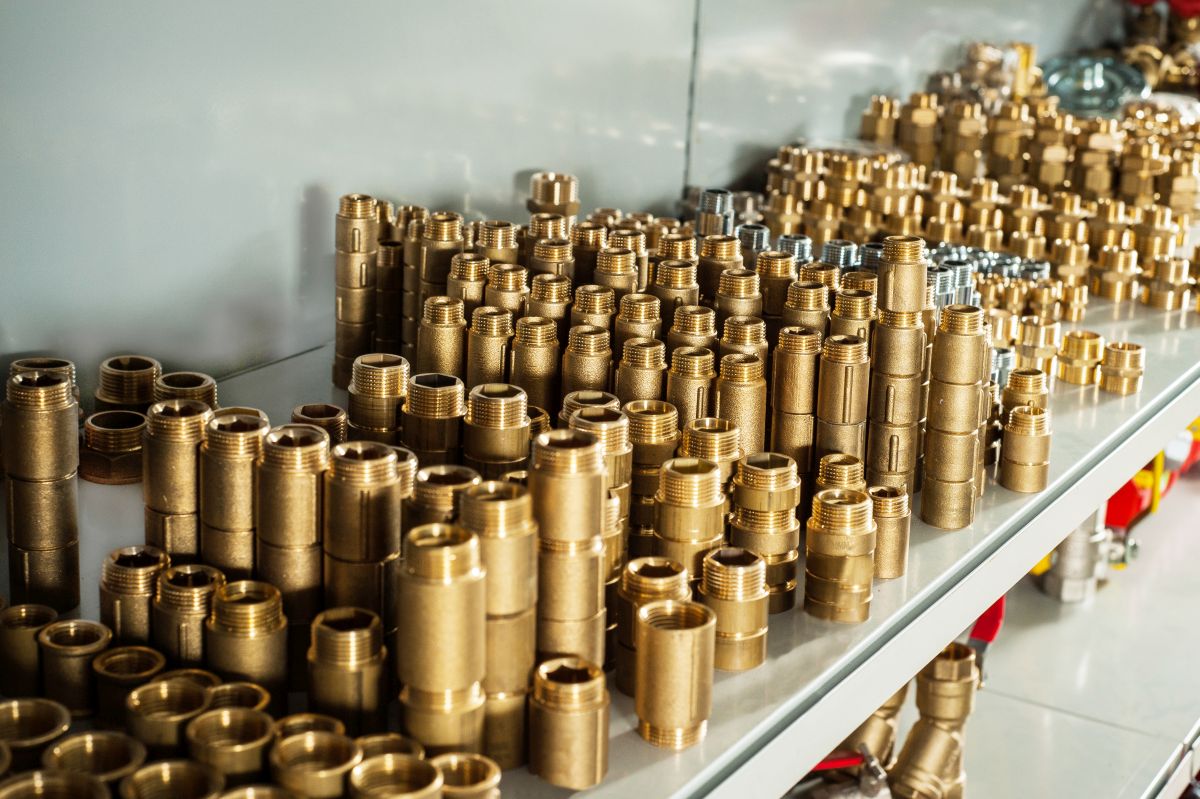272 Brass
One of the many available types of brass, 272 brass is one of the most common brass alloys widely used around the world. Often called “yellow brass,” this alloy typically comprises 62–65% copper and 35–38% zinc, along with trace amounts of elements such as tin, lead, or iron. The properties of 272 brass make it an ideal choice for tubing, fasteners, and small machine parts.
At Polished Metals, our team regularly works with 272 brass varieties, particularly round, square, and rectangular tubing. We maintain a large inventory of this brass variety and can process high-volume orders efficiently and with superior quality control. Get a quote today!

What Is 272 Brass?
272 brass, also sometimes called yellow brass, is an alloy of copper and zinc commonly used in industries like plumbing, electrical work, architecture and design, and for industrial applications.
While it is frequently called “yellow brass,” there are actually several varieties of brass that may be called by this name, including 272 brass, CuZn33, and even Muntz metal. Generally, “yellow brass” refers to a brass alloy with a high zinc content.
272 Brass: Composition & Properties
The composition of 272 brass is generally 62–65% copper and 35–38% zinc. It may also include lead (for machinability), iron (for strength and hardness), nickel (for thermal stability), and/or tin (for corrosion resistance)—all in trace amounts.
This composition gives 272 brass a variety of unique and advantageous properties, including:
- Strength: A high strength to weight ratio makes 272 brass a very durable metal alloy.
- Formability: This alloy has excellent ductility and machinability, enabling it to take on precise shapes. This is ideal for producing small and detailed products.
- Corrosion Resistance: Like all alloys of copper, 272 brass is highly resistant to most forms of corrosion. It does not rust and can resist damage from the air, water, and many chemicals.
- Conductive: Brass is one of the most conductive metals, and 272 brass is no exception. This alloy is commonly seen in electrical components or heat exchanging settings.
- Aesthetics: The striking yellow-gold color of this alloy makes it ideal for decorative purposes, whether polished to a bright mirror shine or even with a subtler satin finish.
Industry Use Cases
With its many excellent properties, 272 brass is commonly used across a wide range of industries. While typically chosen for its practical advantages, architecture and design projects may also use this metal for detailing.
Industrial Applications
This metal may be used for fasteners, heat exchangers, and as tubing in various industrial applications, particularly for machines with moving components such as gears.
Architecture & Design
Whether for interior or exterior design, the attractive appearance of 272 brass makes it a top choice for many architectural projects.
Tubing
272 brass is especially common as a metal chosen for tubing, given its excellent formability, strength, corrosion resistance, and aesthetic properties.
Varied Other Purposes
From electrical components and plumbing fixtures to ammunition casings and musical instruments, 272 brass finds its way into a variety of other metal products.
Polished Metals: Supplying 272 Brass Products
Our team is highly skilled when it comes to producing high-quality brass products in a range of alloys. We maintain a significant inventory of 272 brass, particularly tubing, and our assortment of equipment enables us to polish this metal to meet the specifications of any project—all within your timeline and budget.
Reach out today for a quote!




















